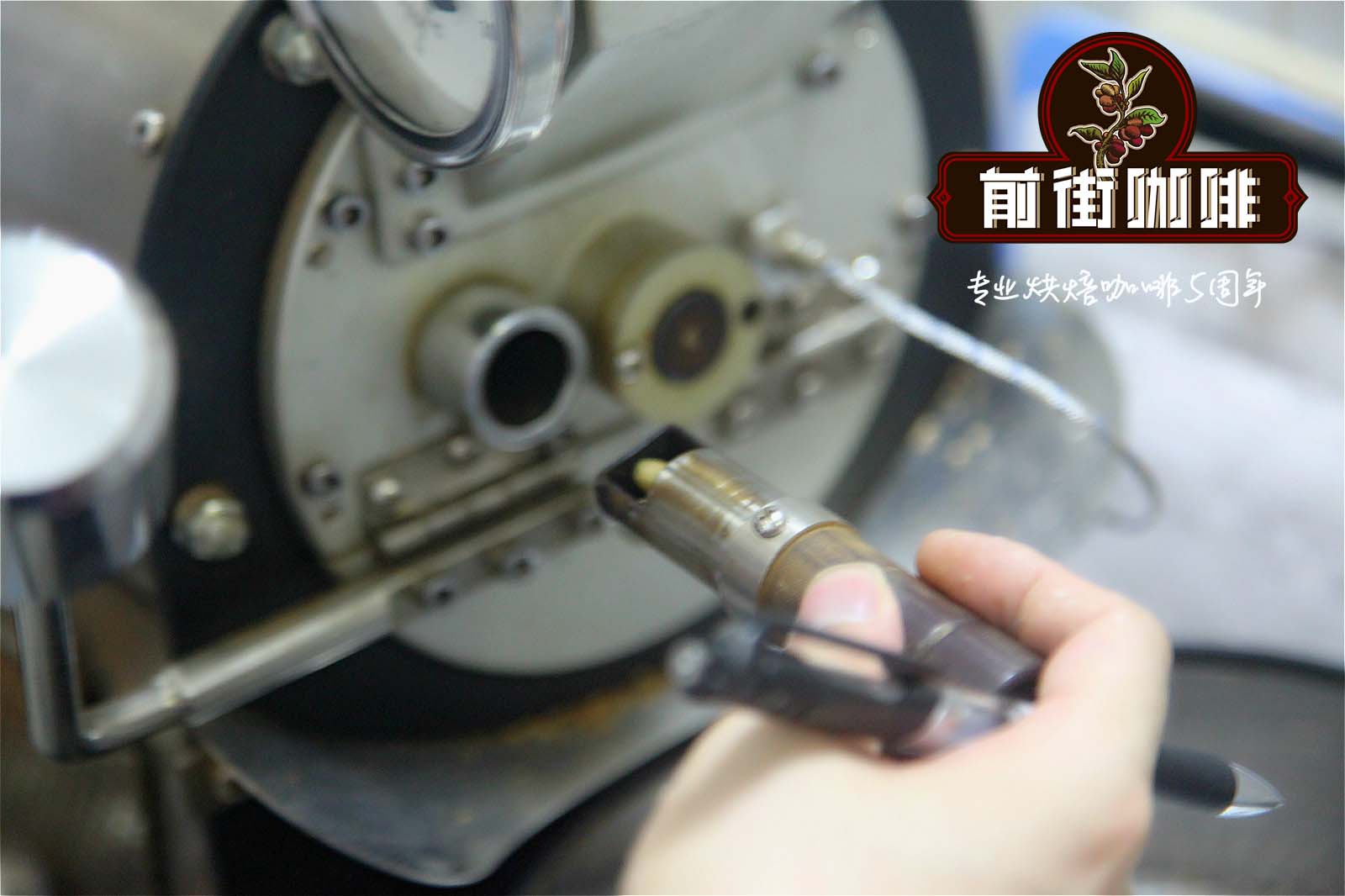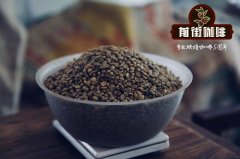What's the difference between shallow baking and deep baking? Is deep baking harmful to your health?

Under the degree of shallow roasting, the "local" of coffee itself is most easily expressed, and the bright and lively flavor of sour fruit is mostly the flavor desired by this roasting degree, which is paired with "black" coffee extraction methods such as hand pulping, siphon, Philharmonic pressure and so on.
Lightly roasted coffee also contains more chlorogenic acid. Many coffee studies have reported that this ingredient can improve high-density lipoprotein cholesterol, protect the liver, slow down arteriosclerosis, and so on, taking advantage of the natural dietary atmosphere that has sprung up in recent years, making fine black coffee even more popular in extraction. as the cell walls of shallow roasted coffee are less damaged, it doesn't matter that we can use a little more "violence" in extraction. That is, fine grinding (the size of fine sugar), high water temperature (about 88Mel 92 degrees), large water flow stirring (the height of the hand flushing pot, pressure by throwing the kettle, etc.), high ratio of water to powder (about 113. 33 Muffle. 1Muzu 16.67) deeper baking can modify too strong and sharp acidity, while deep baking plays a great role in slowing down the irritation of acidity to the tongue, turning it into sweetness and mellow. When it comes to deep baking, many people will subconsciously put the prefix of "Japanese style", just like mentioning "shallow baking". Many people will think of "Nordic shallow baking". When it comes to deep baking, you can't avoid Japanese coffee. According to the coffee concept of the old Japanese tea shop, what they care about is that "coffee should have the most variety of good levels" and "elegant sweet and bitter taste". For the former, the source of coffee flavor is not only its own flavor, but also the flavor that can be given by roasting. The concept of the third wave of boutique coffee is to "keep the former as much as possible", while the concept of the old Japanese tea shop is to "try to take the maximum value of the sum of the two". In addition, the concept of Japanese coffee is different from the SCA system, which includes "elegant sweet and bitter taste" (not bitter taste) into the so-called "good taste" (SCA vice versa). Under the long-term cultural habits, the deeper baking degree is taken for granted as the taste memory of the exclusive Japanese tea shop.
Most of us have imaginations of deep baking, such as bitterness and smoking, mainly because most of our methods of dealing with deep baking are "stir-fry quickly over a big fire", while Japanese baking insists on "baking slowly over a small fire". Therefore, under the same deep baking, the Japanese method is relatively easy to leave more sweetness and mellowness of coffee, leaving aside the taste hobbies caused by local cultures. deep baking requires precision, control and concentration for longer than shallow roasting.
And deep baking is definitely not an unhealthy bean. Interestingly, NMP does not exist in raw coffee beans and can only be produced through the roasting process, and the deeper the roast, the higher the content, which means that drinking deep-roasted coffee is less harmful to the stomach. In addition, the content of acid which is easy to cause stomach discomfort is less in deep-baked beans. Veronika Somoza, a professor in the Department of Nutrition and Physiology at the University of Vienna in Austria, pointed out that the content of NMP in deep-roasted coffee may be more than twice that in light-roasted coffee. So, is it easy to have a cold stomach and heartburn when drinking shallow roasted coffee? Then you may be more suitable for drinking coffee with deeper roasting. As long as it is "appropriate and skilled" deep-baked beans, the impact of coking substances on the human body can be avoided to a great extent. Deep-roasted coffee beans also degrade more trigonelline and produce more nicotinic acid (commonly known as vitamin B3), which is also beneficial to the human body. Unfortunately, the substances available for extraction in deep-roasted coffee are indeed less than those in light-roasted coffee. And because of the serious damage to the cell wall, the extraction is much easier than shallow roasting. It is conceivable that it will definitely produce a bitter taste. Because the two roasting degrees are so different in the degree of damage to the cell wall, the concept of extraction is also quite different. If you want to brew a cup of sweet and mellow deep-roasted coffee, it still needs to be very exquisite and different from shallow roasting. The aroma and sweetness of deep roasting are provided by relatively large molecules of "brown pigment", so it takes a relatively long time to extract. But also because it is easy to extract, it is necessary to "reduce disturbance as much as possible", in other words, "treat coffee powder as gently as possible" and slowly inject water in order to achieve these requirements at the same time.
Important Notice :
前街咖啡 FrontStreet Coffee has moved to new addredd:
FrontStreet Coffee Address: 315,Donghua East Road,GuangZhou
Tel:020 38364473
- Prev

Grinding has a great influence on the flavor of coffee. Can we investigate the grinding degree in the form of "numbers"?
Does the main factor affecting coffee flavor really come from grinding degree? If you want to learn coffee, the first step you can't avoid is Italian concentrate (Espresso) extraction. We have heard that a perfect Espresso should have rich aroma, satisfactory body, clean and balanced taste and so on. We've also heard of it, and to make a perfect Espresso,
- Next

I don't know how to buy coffee beans. What are the three processed flavors of coffee?
Coffee beans are the seeds of coffee fruit, which looks like a red jujube from the outside, and because the small red fruit of coffee fruit is also like a cherry, it is called coffee cherry (coffee cherry) in foreign countries. Structurally, the coffee fruit has the structure of peel, pulp, pectin layer and coffee beans from the outside to the inside, while the coffee fruits are treated with different methods.
Related
- Beginners will see the "Coffee pull flower" guide!
- What is the difference between ice blog purified milk and ordinary milk coffee?
- Why is the Philippines the largest producer of crops in Liberia?
- For coffee extraction, should the fine powder be retained?
- How does extracted espresso fill pressed powder? How much strength does it take to press the powder?
- How to make jasmine cold extract coffee? Is the jasmine + latte good?
- Will this little toy really make the coffee taste better? How does Lily Drip affect coffee extraction?
- Will the action of slapping the filter cup also affect coffee extraction?
- What's the difference between powder-to-water ratio and powder-to-liquid ratio?
- What is the Ethiopian local species? What does it have to do with Heirloom native species?

